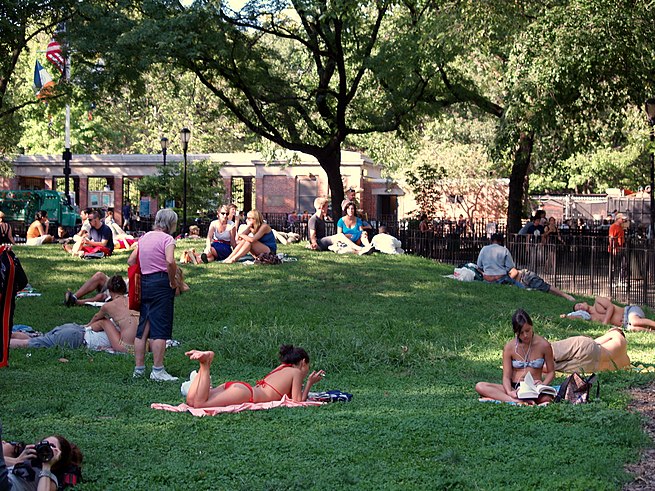
Main Difference
The main difference between Leisure and Recreation is that the Leisure is a time that is freely disposed by individuals and Recreation is a activity of leisure
-
Leisure
Leisure has often been defined as a quality of experience or as free time. Free time is time spent away from business, work, job hunting, domestic chores, and education, as well as necessary activities such as eating and sleeping. Situationist International proposes that leisure does not evolve from free time, and free-time is an illusory concept that is rarely fully “free”; economic and social forces appropriate free time from the individual and sell it back to them as the commodity known as “leisure”. Certainly most people’s leisure activities are not a completely free choice and may be constrained by social pressures, e.g. people may be coerced into spending time gardening by the need to keep up with the standard of neighbouring gardens or go to a party because of social pressures.
Leisure as experience usually emphasizes dimensions of perceived freedom and choice. It is done for “its own sake”, for the quality of experience and involvement. Other classic definitions include Thorsten Veblen’s (1899) of “nonproductive consumption of time.” Different disciplines have definitions reflecting their common issues: for example, sociology on social forces and contexts and psychology as mental and emotional states and conditions. From a research perspective, these approaches have an advantage of being quantifiable and comparable over time and place.Leisure studies and sociology of leisure are the academic disciplines concerned with the study and analysis of leisure. Research has shown that practicing creative leisure activities is interrelated with the emotional creativity. Recreation differs from leisure in that it is a purposeful activity that includes the experience of leisure in activity contexts. Economists consider that leisure times are valuable to a person like wages that they could earn for the same time spend towards the activity. If it were not, people would have worked instead of taking leisure. However, the distinction between leisure and unavoidable activities is not a rigidly defined one, e.g. people sometimes do work-oriented tasks for pleasure as well as for long-term utility. A related concept is social leisure, which involves leisurely activities in social settings, such as extracurricular activities, e.g. sports, clubs. Another related concept is that of family leisure. Relationships with others is usually a major factor in both satisfaction and choice.
The concept of leisure as a human right was realised in article 24 of the Universal Declaration of Human Rights
-
Recreation
Recreation is an activity of leisure, leisure being discretionary time. The “need to do something for recreation” is an essential element of human biology and psychology. Recreational activities are often done for enjoyment, amusement, or pleasure and are considered to be “fun”.
-
Leisure (noun)
Freedom provided by the cessation of activities.
-
Leisure (noun)
Free time, time free from work or duties.
-
Leisure (noun)
Time at one’s command, free from engagement; convenient opportunity; hence, convenience; ease.
-
Recreation (noun)
Any activity, such as play, that amuses, diverts or stimulates.
-
Recreation (noun)
The process of recreating something.
-
Recreation (noun)
The result of this process.
